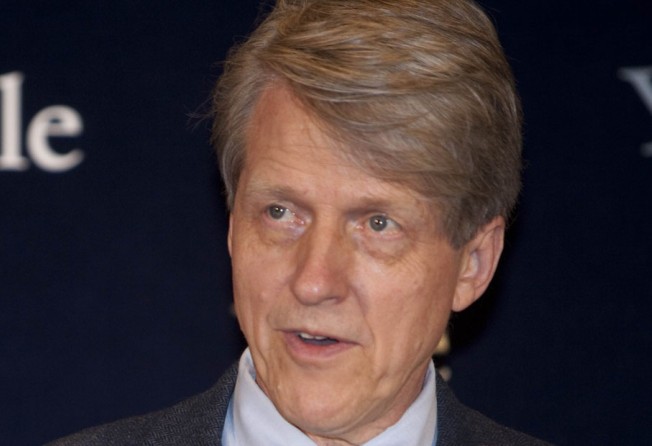
Nobel laureate Robert Shiller warns of 'bubbly' boom as property prices rise
Economist who predicted previous crash says prices are rising too far, too fast again


One of three American economists who won the 2013 Nobel Prize for economics for research into market prices and asset bubbles has expressed alarm at the rapid rise in global house prices.
Robert Shiller, who shared the 8 million Swedish krona (HK$9.62 million) prize with fellow laureates Eugene Fama and Lars Peter Hansen, said the United States Federal Reserve's economic stimulus and growing market speculation were creating a "bubbly" property boom.
The Royal Swedish Academy of Sciences lauded the economists' research on the prices of stocks, bonds, and other assets, saying "mispricing of assets may contribute to financial crises and, as the recent global recession illustrates, such crises can damage the overall economy".
This was the case in the collapse of the US housing market, which helped trigger the 2008-2009 global financial crisis. Markets are at risk of committing the same error now, Shiller said after learning he had won the Nobel prize.
"This financial crisis that we've been going through in the last five years has been one that seems to reveal the failure to understand price movements," Shiller said.
Bubbles are created when investors fail to recognise when rising asset prices become detached from underlying fundamentals.
Shiller and other economists warn that prices in some markets have risen too far, too fast due to the Fed's ultra-easy monetary policy. The benchmark US Standard & Poor's 500 index hit a record in September, though it is generally not considered overvalued based on expectations for corporate earnings results or economic growth.
Shiller's work led him to suggest in 2005 that the US housing market might be overheating. He helped create a closely watched gauge of housing prices, the S&P Case/Shiller Index.
In June this year, he pointed to a potential new housing bubble in some of America's largest cities. "It is up 12 per cent in the last year. This is a very rapid price increase right now, and I believe that it is accelerated somewhat by the Fed's policy," he said.
China, Brazil, India, Australia, Norway and Belgium, among other countries, were witnessing similar price rises. "There are so many countries that are looking bubbly," he said.
The Fed has held US interest rates near zero since late 2008 and almost quadrupled its balance sheet to around US$3.7 trillion through a campaign of bond buying, or quantitative easing, to hold down long-term borrowing costs.
Placing more emphasis on avoiding asset price bubbles, and financial stability in general, has been a controversial topic for many years in policymaking circles.
"When asset prices are getting way out of line it should be cause for alarm. The monetary authorities should lean against extreme asset price movements," Shiller said.
The bubbling housing market is not mainly the result of central bank policy, but reflects a shift towards "a more speculative attitude", Shiller said. "We cannot expect monetary policy to cure all of these problems."